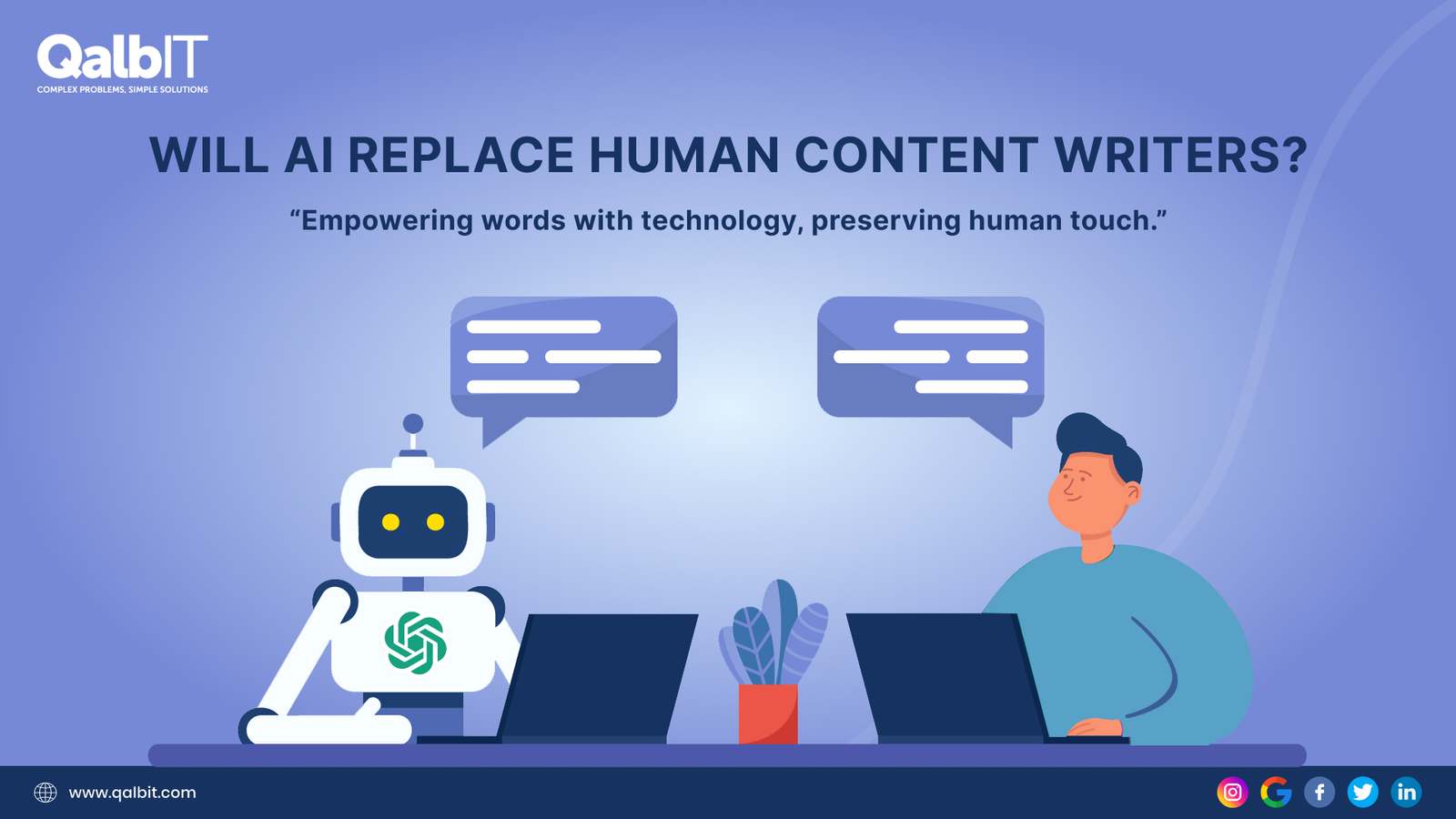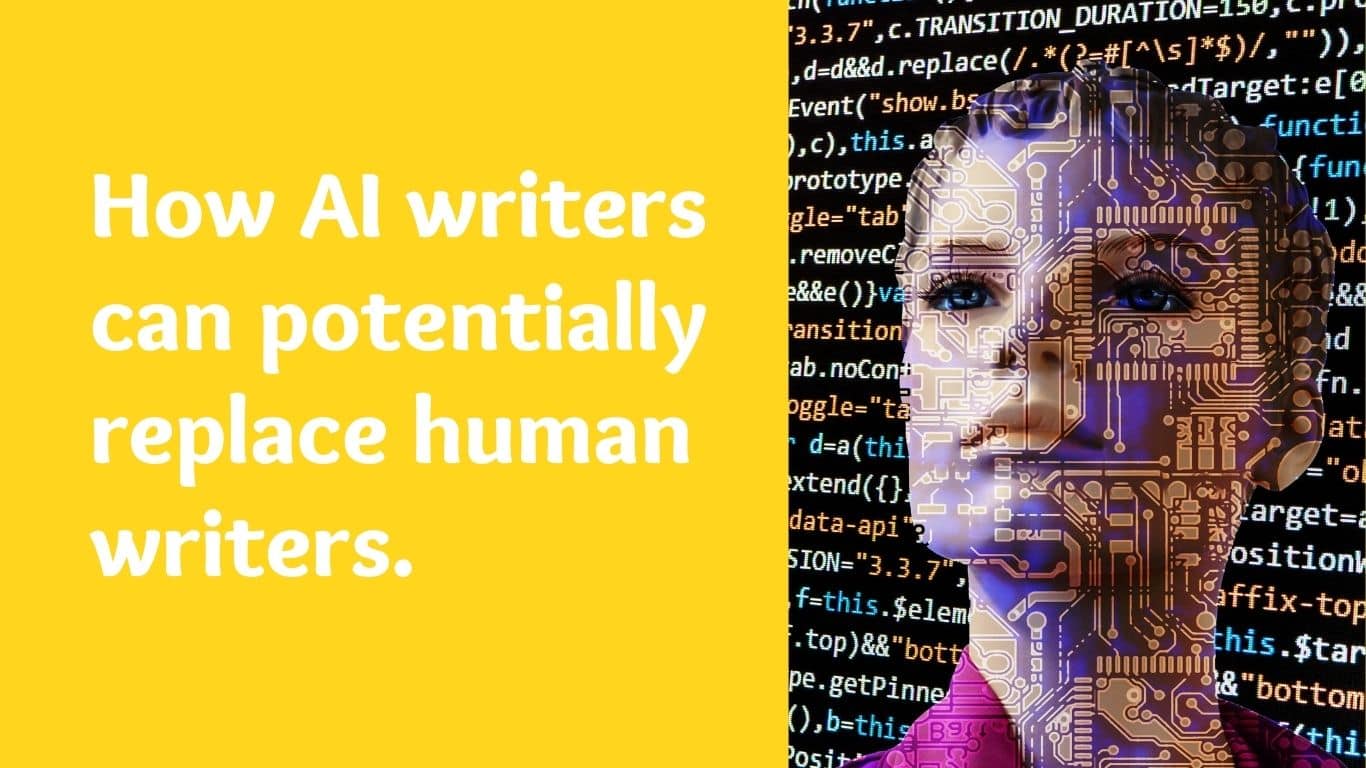The rise of artificial intelligence (AI) has sparked widespread debate about its potential impact on various industries, including writing. AI writing tools, capable of generating text that mimics human writing, have emerged as a force to be reckoned with.
This raises a crucial question: Will AI replace human writers? While AI possesses remarkable capabilities, a deeper examination reveals that the future of writing lies in a collaborative partnership between humans and machines.
This exploration delves into the current capabilities of AI in writing, analyzing the strengths and limitations of both AI and human writers, and envisioning a future where both entities collaborate to produce innovative and engaging content.
AI Capabilities in Writing

Artificial intelligence (AI) has made significant strides in recent years, particularly in the realm of natural language processing (NLP). This advancement has led to the development of sophisticated AI systems capable of generating human-like text, revolutionizing various writing tasks.
Text Generation
AI algorithms, such as GPT-3, are trained on massive datasets of text and code, enabling them to learn patterns and relationships within language. This learning process allows them to generate coherent and contextually relevant text, often indistinguishable from human-written content.
AI can produce various types of written content, including:
- News articles:AI can generate news articles based on factual data, summarizing key events and presenting information in a concise and engaging manner.
- Marketing copy:AI can create compelling marketing materials, such as product descriptions, social media posts, and email campaigns, tailored to specific audiences and marketing goals.
- Creative writing:AI can generate poetry, short stories, and even scripts, exploring different genres and styles, showcasing its ability to mimic human creativity.
Content Summarization
AI can efficiently analyze and summarize large volumes of text, extracting key information and presenting it in a concise and understandable format. This capability is valuable for various purposes, such as:
- Research:AI can summarize academic papers, reports, and other research materials, allowing researchers to quickly grasp the main points and identify relevant information.
- News aggregation:AI can summarize news articles from multiple sources, providing users with a concise overview of current events.
- Customer service:AI can summarize customer inquiries and complaints, helping businesses understand customer needs and provide efficient support.
Writing Style Adaptation
AI can adapt its writing style to different contexts and audiences, mimicking various tones and voices. This versatility makes it suitable for a wide range of writing tasks, including:
- Formal writing:AI can generate academic papers, legal documents, and other formal texts, adhering to specific stylistic conventions and language requirements.
- Informal writing:AI can produce conversational dialogue, social media posts, and other informal content, mimicking the tone and style of everyday language.
- Creative writing:AI can adapt its style to different genres, such as poetry, fiction, and non-fiction, capturing the unique characteristics of each genre.
Examples of AI-Generated Content
Several examples demonstrate the capabilities of AI in writing:
- The Associated Press (AP)uses AI to generate short news articles about corporate earnings reports, providing a quick and efficient way to deliver information to readers.
- OpenAI’s GPT-3has been used to generate various types of creative content, including poetry, short stories, and even a complete novel.
- Copy.aiis an AI-powered copywriting tool that generates marketing copy for websites, social media, and email campaigns.
Human Writers’ Strengths and Uniqueness

While AI can generate text that is grammatically correct and factually accurate, it often lacks the nuance and depth that human writers bring to their work. Human writers possess a unique blend of skills and qualities that enable them to create engaging, impactful, and meaningful content.
Creativity and Imagination
Human writers possess a unique ability to think outside the box and come up with original ideas. This creativity allows them to generate fresh perspectives and compelling narratives that resonate with readers.
Creativity is the ability to produce something new and valuable.
This ability to tap into their imagination and create something truly unique is a strength that AI struggles to replicate.
Critical Thinking and Analysis
Human writers are skilled at analyzing information, identifying patterns, and drawing meaningful conclusions. This critical thinking allows them to produce content that is insightful, well-reasoned, and persuasive.
Critical thinking is the ability to analyze information objectively and make sound judgments.
They can synthesize complex ideas, present arguments effectively, and challenge conventional wisdom. This ability to analyze information and formulate insightful conclusions is crucial for creating content that is both informative and thought-provoking.
Emotional Intelligence and Empathy
Human writers are able to understand and respond to the emotions of their audience. They can tap into their own emotions and use them to connect with readers on a deeper level.
Emotional intelligence is the ability to understand and manage one’s own emotions, and the emotions of others.
This empathy allows them to create content that is relatable, moving, and impactful. This ability to connect with readers on an emotional level is a crucial element of creating content that truly resonates.
Adaptability and Flexibility
Human writers are able to adapt their writing style and tone to suit different audiences and purposes. They can write for a variety of mediums, including print, digital, and social media.
Adaptability is the ability to adjust to new situations and challenges.
They can also adjust their writing style to meet the specific needs of their clients or employers. This ability to adapt and be flexible is crucial for navigating the ever-changing landscape of content creation.
Future of Writing in the AI Era

The rise of AI in writing presents both challenges and opportunities for the writing profession. While AI tools can automate certain aspects of writing, they cannot replicate the creativity, critical thinking, and emotional intelligence that human writers bring to the table.
As AI technology continues to evolve, the future of writing will likely involve a dynamic interplay between human and artificial intelligence.
The Evolving Role of Human Writers
The emergence of AI writing tools will not replace human writers entirely but will likely reshape their roles. Human writers will increasingly focus on higher-level tasks such as:
- Developing original concepts and ideas
- Crafting compelling narratives and engaging content
- Conducting in-depth research and analysis
- Providing expert insights and perspectives
- Editing and refining AI-generated content
In essence, human writers will become curators and strategists, leveraging AI tools to enhance their creativity and efficiency.
Influence of AI on Writing Styles
AI is already influencing the development of new writing styles. For instance, AI-powered tools are used to analyze large datasets of text and identify patterns in language, leading to the emergence of more concise, data-driven, and personalized writing styles.
- Concise and Data-Driven Writing:AI tools can analyze vast amounts of text and identify key themes, patterns, and insights, leading to more concise and data-driven writing styles. For example, AI-powered summarization tools can condense lengthy articles into brief summaries, highlighting the most important points.
- Personalized Writing:AI can personalize content based on individual preferences and behaviors. For example, AI-powered chatbots can tailor their responses to specific users, creating a more personalized and engaging writing experience.
AI is also influencing the development of new writing formats, such as interactive stories, immersive experiences, and personalized content tailored to specific audiences.
New Writing Professions
The rise of AI in writing is also likely to create new writing professions. For example, there may be a growing demand for:
- AI Writing Trainers:Professionals who specialize in training AI models to produce high-quality, human-like content.
- AI Content Curators:Individuals who curate and manage AI-generated content, ensuring its accuracy, relevance, and ethical implications.
- AI Writing Ethics Specialists:Professionals who focus on the ethical considerations of AI writing, such as bias detection, copyright issues, and the responsible use of AI in content creation.
These new professions will require a deep understanding of AI technology, writing principles, and ethical considerations.
AI vs. Human Writers: A Comparative Analysis
| Feature | AI Writers | Human Writers |
|---|---|---|
| Speed and Efficiency | High | Moderate |
| Consistency and Accuracy | High | Moderate |
| Creativity and Originality | Limited | High |
| Emotional Intelligence and Empathy | None | High |
| Critical Thinking and Analysis | Limited | High |
| Ethical Considerations | Potentially biased | Stronger ethical compass |
AI writers excel in tasks requiring speed, consistency, and accuracy. However, they lack the creativity, critical thinking, and emotional intelligence that human writers bring to the table. As AI technology evolves, the lines between human and AI writing will continue to blur, requiring a collaborative approach to writing in the future.
Last Recap
The future of writing is not a binary choice between AI and human writers. Instead, it is a dynamic landscape where both forces complement each other, leveraging their respective strengths to create a richer and more nuanced experience for readers.
AI tools can empower human writers, allowing them to focus on their unique skills, such as creativity, critical thinking, and emotional intelligence. Ultimately, the collaborative approach will pave the way for a future where AI and human writers work in tandem to shape the world of content creation.
Essential FAQs
Will AI writing tools ever be able to fully replicate the human touch in writing?
While AI writing tools have advanced significantly, replicating the full spectrum of human creativity, emotional intelligence, and nuanced understanding of language remains a challenge. AI excels at generating factual content and adhering to specific writing styles, but it struggles to capture the subtle nuances of human expression and evoke genuine emotional responses.
What are some examples of AI writing tools currently available?
There are various AI writing tools available, including Grammarly, Jasper, Copy.ai, and Rytr. These tools offer features like grammar and spelling correction, text summarization, content generation, and style adaptation. However, it’s crucial to remember that AI tools should be used as aids and not replacements for human writers.
How can human writers stay relevant in the age of AI?
Human writers can stay relevant by embracing the collaborative potential of AI. They can leverage AI tools for research, editing, and idea generation, allowing them to focus on higher-level tasks that require creativity, critical thinking, and emotional intelligence. Moreover, human writers should continue to develop their unique skills, such as storytelling, persuasive writing, and understanding complex concepts.
